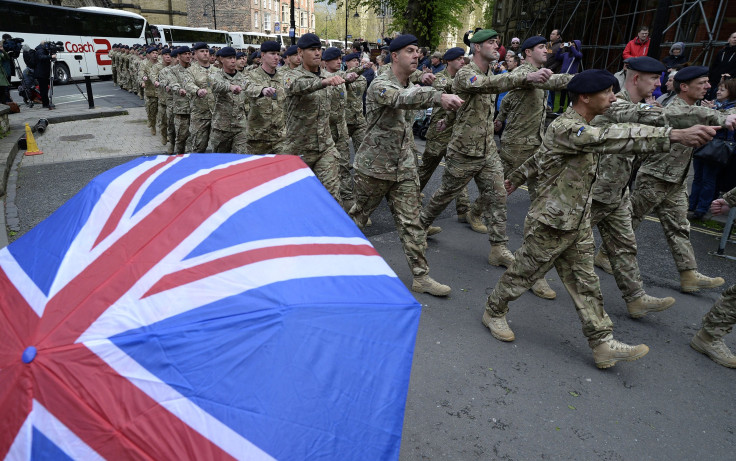EU President Floats European Army, But European Nations Want Nothing to Do With It

The U.K. has become the latest European Union country to reject the concept of a standing European army, which has been touted as a way to counter overt Russian hostility. Latvia and Poland joined Britain in shooting down European Commission President Jean-Claude Juncker’s latest iteration of the idea Tuesday.
“Our position is crystal clear,” a U.K. government representative said. “Defense is national, not an EU responsibility, and there is no prospect of that position changing and no prospect of a European army.”
Juncker, a past prime minister of Luxembourg and the present head of the EU’s executive arm, has floated the notion in the past, arguing that such an army would unify foreign policy in the region and strengthen pan-European values.
“A common army among the Europeans would convey to Russia that we are serious about defending the values of the European Union,” Juncker told Germany’s Welt am Sonntag newspaper this week.
Polish and Latvian officials, whose nations sit next-door to Russia, have wholly rejected the idea. Polish Foreign Minister Grzegorz Schetyna told the Polish radio station Radio Zet it would be a “very risky idea,” while Latvian Prime Minister Laimdota Straujuma was also cool to the idea. “There is a possibility it could be discussed in July at the European Council, but it’s important to check whether this might be duplicating NATO,” Straujuma told the Latvian public broadcaster LTV.
Currently, 22 of the 28 member states of the EU are members of NATO, the U.S.-led alliance whose charter specifies that an attack on one member is an attack on all, thereby eliciting immediately a collective response by the world’s most powerful militaries. NATO leaders are attempting to encourage the alliance’s members to allocate more money for defense, although the target of getting them to annually spend 2 percent of gross domestic product for such a purpose constitute pipe dreams for many states.
Prominent defense expert Claudia Major of the German Institute for International and Security Affairs told the German news outlet Deutsche Welle that a shared army would create some difficulties. “It’s a wonderful idea, but people can have it without worrying it will really be implemented,” Major said. “If you look at what a European army would mean, the most important question is: Who decides on sending soldiers where? Who decides on whom they might kill, or who might kill them?”
© Copyright IBTimes 2025. All rights reserved.






















